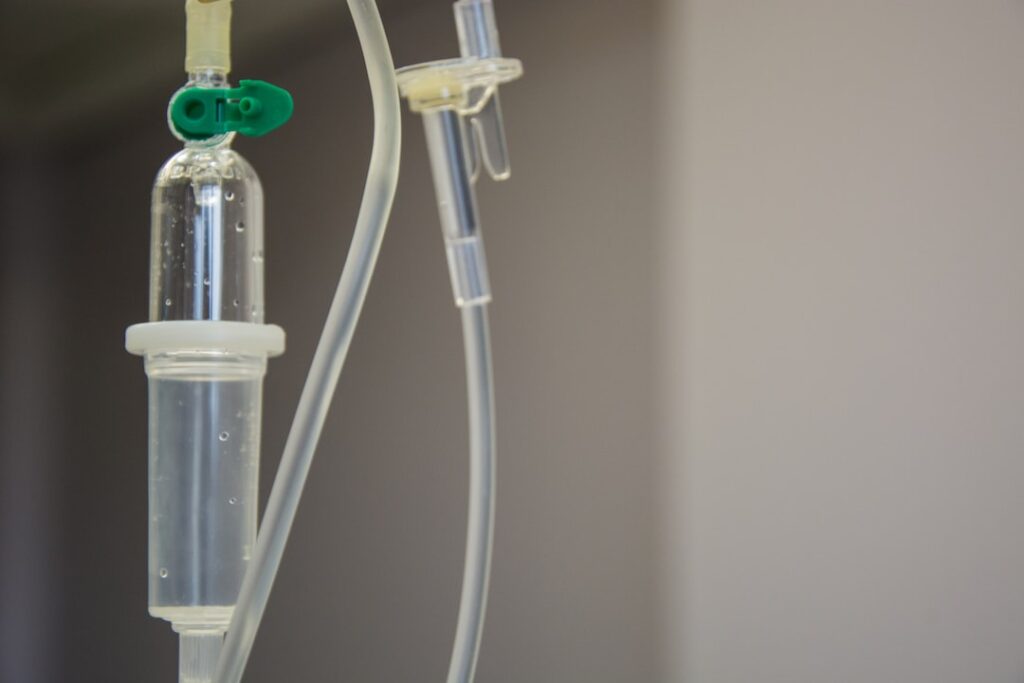Tinnitus is a condition characterized by the perception of sound in the ears or head without any external source. It is often described as a ringing, buzzing, or hissing sound. Tinnitus can be temporary or chronic and can vary in intensity. It affects millions of people worldwide and can have a significant impact on daily life.
There are several common causes of tinnitus, including exposure to loud noise, age-related hearing loss, earwax blockage, and certain medications. Other factors such as stress, anxiety, and depression can also contribute to the development and severity of tinnitus.
Tinnitus can have a profound impact on daily life. The constant presence of sound can make it difficult to concentrate, sleep, and engage in social activities. It can also lead to feelings of frustration, irritability, and anxiety. Many individuals with tinnitus report a decreased quality of life and an increased risk of developing mental health issues.
Seeking Professional Help: The Importance of Consulting an Audiologist Near You
If you are experiencing tinnitus, it is important to seek professional help from an audiologist. An audiologist is a healthcare professional who specializes in the diagnosis and treatment of hearing and balance disorders, including tinnitus.
Finding an audiologist near you is relatively easy. You can start by asking your primary care physician for a referral or conducting an online search for audiologists in your area. It is important to choose an audiologist who has experience in treating tinnitus and who you feel comfortable working with.
During a tinnitus evaluation, the audiologist will conduct a thorough assessment to determine the cause and severity of your tinnitus. This may include a comprehensive hearing test, medical history review, and lifestyle assessment. The audiologist will then develop a personalized treatment plan based on your specific needs and goals.
Exploring Tinnitus Treatment Options: From Medications to Sound Therapy
There are several treatment options available for tinnitus, ranging from medications to sound therapy. The choice of treatment will depend on the underlying cause of your tinnitus and your individual preferences.
Medications commonly used to treat tinnitus include antidepressants, antianxiety medications, and anticonvulsants. These medications can help manage the emotional distress associated with tinnitus and may provide some relief from the symptoms.
Sound therapy is another effective treatment option for tinnitus. It involves using external sounds to mask or distract from the perception of tinnitus. White noise machines, sound generators, and hearing aids with built-in sound therapy features are commonly used in sound therapy. These devices can provide relief by reducing the contrast between the tinnitus and the surrounding environment.
Cognitive Behavioral Therapy: Addressing the Emotional Impact of Tinnitus
Tinnitus can have a significant emotional impact on individuals, leading to feelings of anxiety, depression, and frustration. Cognitive behavioral therapy (CBT) is a type of therapy that focuses on changing negative thought patterns and behaviors.
CBT can be an effective treatment option for managing the emotional impact of tinnitus. It can help individuals develop coping strategies, challenge negative thoughts about tinnitus, and improve their overall quality of life. CBT can be done individually or in a group setting and is often combined with other treatment modalities for optimal results.
Hearing Aids and Tinnitus: How They Work Together to Provide Relief
Hearing aids are commonly used to treat hearing loss, but they can also be beneficial for individuals with tinnitus. Hearing aids work by amplifying external sounds, which can help mask or distract from the perception of tinnitus.
There are different types of hearing aids that are best suited for individuals with tinnitus. Some hearing aids have built-in sound therapy features that provide additional relief from tinnitus symptoms. These devices can play soothing sounds such as white noise or nature sounds to help individuals relax and focus on external sounds rather than their tinnitus.
When used in combination with sound therapy, hearing aids can provide significant relief from tinnitus symptoms. They can improve communication, reduce the perception of tinnitus, and enhance overall quality of life.
Tinnitus Retraining Therapy: Retraining the Brain to Ignore Tinnitus

Tinnitus retraining therapy (TRT) is a specialized form of therapy that aims to retrain the brain to ignore the perception of tinnitus. It involves a combination of sound therapy and counseling to help individuals habituate to their tinnitus and reduce its impact on daily life.
TRT works by using low-level, broadband noise to partially mask the perception of tinnitus. Over time, the brain learns to filter out the tinnitus signal, resulting in reduced awareness and distress. TRT typically involves regular counseling sessions and the use of sound generators or hearing aids with built-in sound therapy features.
Success rates of TRT vary depending on the individual and the severity of their tinnitus. However, many individuals report significant improvement in their tinnitus symptoms and an improved quality of life after undergoing TRT.
Acupuncture and Tinnitus: Can It Help Alleviate Symptoms?
Acupuncture is an ancient Chinese practice that involves inserting thin needles into specific points on the body to promote healing and balance. It is often used as a complementary therapy for various health conditions, including tinnitus.
Acupuncture may help manage tinnitus by improving blood flow, reducing inflammation, and promoting relaxation. Some studies have shown promising results in reducing the severity of tinnitus symptoms with acupuncture. However, more research is needed to determine its effectiveness as a standalone treatment for tinnitus.
Herbal Remedies and Tinnitus: Separating Fact from Fiction
There are several herbal remedies that are commonly used for tinnitus, including ginkgo biloba, zinc, and melatonin. These remedies are believed to improve blood flow, reduce inflammation, and promote relaxation, which may help alleviate tinnitus symptoms.
While some individuals report improvement in their tinnitus symptoms with herbal remedies, the evidence supporting their effectiveness is limited. More research is needed to determine the true benefits and potential risks of using herbal remedies for tinnitus. It is important to consult with a healthcare professional before starting any herbal remedies to ensure their safety and efficacy.
Lifestyle Changes and Tinnitus: How Diet and Exercise Can Make a Difference
Making certain lifestyle changes can also help manage tinnitus symptoms. Diet and exercise play a crucial role in overall health and can have a positive impact on tinnitus.
Certain foods and beverages can exacerbate tinnitus symptoms, such as caffeine, alcohol, and high-sodium foods. It is important to avoid or limit these triggers to reduce the severity of tinnitus. On the other hand, incorporating foods rich in antioxidants, vitamins, and minerals can support overall ear health and potentially reduce tinnitus symptoms.
Regular exercise can also help manage tinnitus by reducing stress, improving blood circulation, and promoting relaxation. Engaging in activities such as walking, swimming, or yoga can have a positive impact on both physical and mental well-being.
Finding the Right Tinnitus Treatment for You in Kuantan
In conclusion, tinnitus is a common condition that can have a significant impact on daily life. Seeking professional help from an audiologist is crucial in diagnosing and treating tinnitus effectively. There are various treatment options available, including medications, sound therapy, cognitive behavioral therapy, hearing aids, tinnitus retraining therapy, acupuncture, herbal remedies, and lifestyle changes.
Finding the right treatment for your tinnitus may require some trial and error. It is important to consult with an audiologist who specializes in tinnitus treatment to develop a personalized treatment plan that suits your needs and goals. With the right treatment and support, it is possible to manage tinnitus and improve your quality of life.
If you’re looking for effective tinnitus treatment in Kuantan, you might want to check out HearCare Malaysia. They offer a range of solutions to help manage and alleviate the symptoms of tinnitus. In fact, they recently published an article titled “The Sound Solution: Unveiling the Top Audiologist in Malaysia,” which highlights the expertise and experience of their top audiologists in providing quality care for individuals with hearing issues. To learn more about their services and the top audiologist in Malaysia, visit https://hearcaremalaysia.com/the-sound-solution-unveiling-the-top-audiologist-in-malaysia/.
FAQs
What is tinnitus?
Tinnitus is a condition where a person hears a ringing, buzzing, or other sounds in their ears or head without any external source of sound.
What causes tinnitus?
Tinnitus can be caused by various factors such as exposure to loud noise, ear infections, earwax buildup, certain medications, and underlying health conditions.
What are the symptoms of tinnitus?
The symptoms of tinnitus include hearing sounds such as ringing, buzzing, hissing, or clicking in the ears or head. Some people may also experience dizziness, headaches, and difficulty sleeping.
How is tinnitus diagnosed?
Tinnitus is diagnosed through a physical examination, hearing tests, and imaging tests such as MRI or CT scans.
What are the treatment options for tinnitus?
Treatment options for tinnitus include sound therapy, cognitive behavioral therapy, medication, and in some cases, surgery. It is important to consult a healthcare professional for proper diagnosis and treatment.
Is there a cure for tinnitus?
There is currently no cure for tinnitus, but there are various treatment options available to manage the symptoms and improve quality of life.

